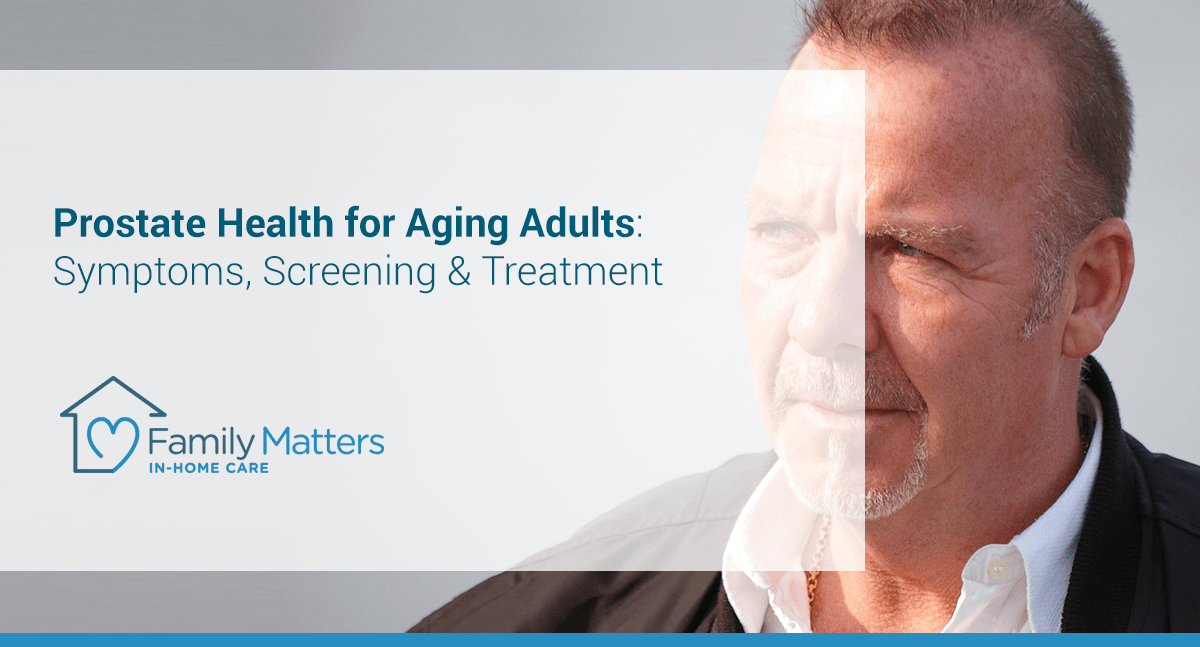
Prostate Health for Aging Adults: Symptoms, Screening & Treatment
Men have prostates, which are small glands located near the bladder. Prostates can develop problems like infections or inflammation. Cancer cells can also form in the prostate, which can develop into tumors. There are more than 20 specific forms of prostate cancer.
Symptoms of Prostate Cancer
Unfortunately, prostate cancer doesn’t usually have symptoms until it is in an advanced stage. That’s why screening for prostate cancer is so important.
Screening for Prostate Cancer
There are two main options for screening for prostate cancer. Seniors can receive a blood test, which is called a prostate-specific antigen (PSA) test. A physical rectal exam may also be conducted. If a doctor suspects a patient has prostate cancer, a biopsy is almost always involved in the diagnosis.
Treatment of Prostate Cancer
The most common treatments for prostate cancer include radiation, surgery to remove tumors, and drug-based therapies.
Risk Factors for Prostate Cancer
Men should be certain to get screened for prostate cancer if they:
- Are over 65
- Have a family history of cancer
- Have genetic factors predisposing cancer
- Are African American
- Have an unhealthy lifestyle and poor dietary habits
Why Screening for Prostate Cancer is Vital
The obvious reason for screening older men for cancer is that early detection increases the odds of survival. There are other reasons for getting screened, though:
- Men with prostate cancer may have genes that predispose both their sons and daughters to forms of cancer
- Data about prostate cancer, even if it is non-aggressive, can be used by researchers to prevent and treat all cancers
- Early detection can reduce the intensity of treatment required, as well as the side effects.
- Doctors may be able to begin with the less invasive blood test if a senior’s risk level is low.
Home Care Tip: For many men, having to experience a rectal exam is the main reason for avoiding prostate cancer screening. Remind senior men that their health (and genes) can affect their loved ones. Any temporary discomfort is worth it.
If you or your family member is considering in-home care as part of a plan to age in place, contact Family Matters In-Home Care today for a free consultation. Our team is dedicated to supporting your family and helping older adults enjoy life in the comfort of their own home for as long as possible.
Some of the services offered by Family Matter In-Home Care include: Alzheimer’s & Dementia Care, Bed & Wheelchair Transfer Assistance, Companionship, Housekeeping & Meal Preparation, Personal Care, Recovery Care, and Transportation.
Serving the San Francisco Bay Area and Greater San Diego, Family Matter In-Home Care has offices throughout California including: Campbell, CA, Roseville, CA, San Marcos, CA, and San Mateo, CA.
Source(s):
- https://cdn2.hubspot.net/hubfs/1708580/Marketing%20Monthlies/PDFs%20from%20Windfarm%20Marketing/0919-SeniorProstateCancer-RGB.pdf
- https://www.pcf.org/guide/prostate-cancer-patient-guide/
- https://www.mayoclinic.org/diseases-conditions/prostate-cancer/in-depth/prostate-cancer-prevention/art-20045641
- https://www.pcf.org/guide/prostate-cancer-patient-guide/
- https://www.pcf.org/about-us/about-our-work/why-we-are-different/
